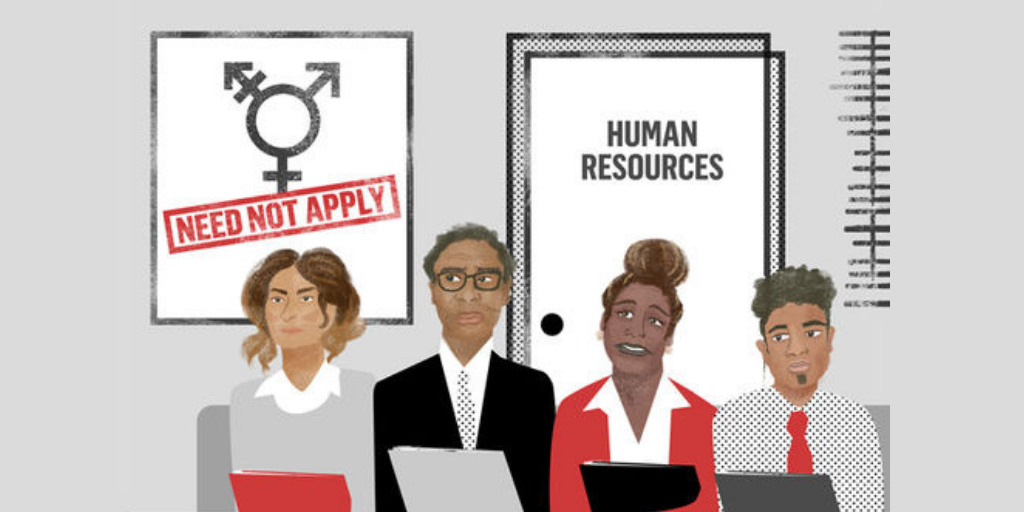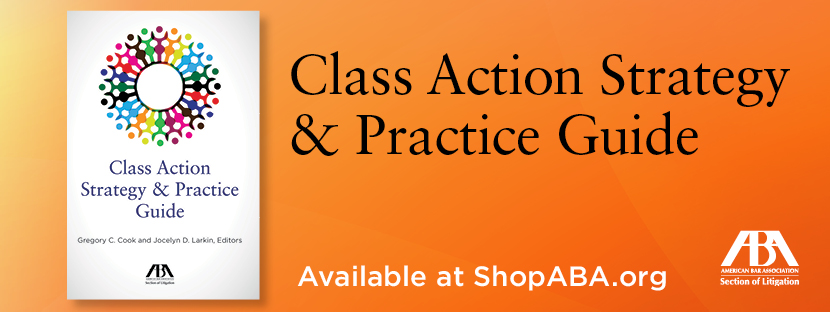
PRACTITIONER BLOG
Read our analyses of developments in Impact Litigation and stay current on class action law

Ninth Circuit Rules on Article III Class Action Standing in Favor of Plaintiffs in Ramirez v. TransUnion
Given the issues, I expect the defendant will be filing en banc and cert petitions. While the buzz on the case is on punitive damages, I think the Article III standing issues will be the heart of future disputes. The first piece of good news is that the facts in the case are very sympathetic for the plaintiffs, which will be helpful going forward. In brief, TransUnion incorrectly placed terrorist alerts on the front page of consumer credit reports for approximately 8000 individuals.

Artificial Intelligence: How the Internet’s Gatekeeper Could Affect Your Civil Rights
Artificial intelligence prevents us from being inundated with irrelevant information – and that raises an important question. Who determines what is relevant or irrelevant? And how do they decide? If an artificial intelligence program delivers me Chopin instead of Lizzo, it would be surprising. But if an artificial intelligence program delivers me a job ad for administrative assistant and prevents me from seeing one for car mechanic, that could be illegal.

Impact Fund & Amici to Florida Court of Appeals: Local Non-Discrimination Ordinances Must Be Respected
Today, we filed an amicus brief in the Florida court of appeals along with the National Center for Lesbian Rights, Equality Florida, and civil rights firm Cohen Milstein Sellers & Toll PLLC. We were joined by eight additional organizations representing LGBTQ people, workers, women, and other concerned communities. Our brief documents the ongoing discrimination faced by LGBTQ people, people of color, people with disabilities, and older people in Florida. It also describes the diversity of local human rights ordinances across the state that prohibit discrimination against vulnerable groups that are not protected by state law, including LGBTQ people, elderly tenants, veterans, survivors of domestic violence, and workers at small businesses.

Impact Fund to Ben Carson: Don’t Eviscerate Disparate Impact Rule That Protects Against Housing Discrimination
The Trump Administration has proposed a revised regulation that eviscerates the Fair Housing Act’s protections and undermines the civil rights promises of the Fair Housing Act. HUD says that its proposal aligns the rule with judicial interpretations of disparate impact law, including Inclusive Communities, but it does nothing of the sort. Instead, the rule incorrectly twists the language of the Supreme Court and runs roughshod over settled case law on disparate impact. Should the rule come into effect, it would severely roll back these protections for our most vulnerable communities, and it would allow discriminatory conduct to flourish.

Impact Fund Applauds House Passage of FAIR Act Bill, Limiting Forced Arbitration
The FAIR Act would invalidate any agreements requiring arbitration of employment, consumer, antitrust, or civil rights claims. This means that a court could not order arbitration of any legal claim arising in those contexts; instead, plaintiffs could pursue their cases in court. The bill explicitly outlaws class or collective action waivers, thereby ensuring that group actions can remain powerful mechanisms to achieve justice.

Appeals Court: D.C. Must Better Integrate People with Disabilities into their Community, Upholds Class Action Remedy
Last month, the Court of Appeals for the D.C. Circuit decided Brown v. District of Columbia, 928 F.3d 1070 (D.C. Cir. 2019), in favor of a class of about 1,000 residents of D.C.-supported nursing facilities who are seeking transfers to community-based care. The class alleged that the District failed to transition them out of the public institutions in violation of the Americans with Disabilities Act (ADA) and the Rehabilitation Act, which prohibits discrimination against persons with disabilities by programs receiving federal assistance (here, Medicaid, which helps fund the nursing facilities).

Impact Fund and Allies File Amicus Brief Urging SCOTUS to Protect LGBTQ Workers
LGBTQ workers are entitled to the full protections of our nation’s laws. If the Supreme Court rules that Title VII does not prohibit discrimination based on sexual orientation and gender identity, it will create an arbitrary and painful carve-out to the landmark civil rights law, leaving LGBTQ workers vulnerable to discrimination and harassment on the job. The Impact Fund and our allies urge the Court to adopt a uniform, protective standard that will fulfill Title VII’s promise of equal employment opportunity for all.

Impact Fund and Allies File Amicus Brief to Preserve Workers’ Right to Bring Class Actions Under the ADA
Workers discriminated against on the basis of disability must be allowed to join together and use class actions to pursue workplaces free of discrimination, just as Congress intended when it passed the ADA.

LAWSUIT RESULTS IN A FAIR CHANCE FOR JOB SEEKERS WITH PRIOR CONVICTIONS
Walter went to a “clean slate” organization, where they helped him reduce the conviction to a misdemeanor. He believed that it had been “expunged” and removed from his conviction record entirely. So when the school district’s job application asked about prior convictions, Walter answered, “No.” When a background check surfaced his old conviction, that mistake cost Walter the job.

SCOTUS Takes up LGBTQ Workers' Rights Under Title VII of the Civil Rights Act
By taking up all three cases the Supreme Court has decided to take on one of the most critical issues facing the LGBTQ community: whether federal law allows people to express their identity fully without reprisal or harassment.

TIME’S UP Legal Defense Fund: #MeToo for Low-wage Workers
Whether you have a workplace sexual harassment case which needs funding, your client would benefit from storytelling assistance, you are worried about a defendant coming after your client for defamation, or you would like to become a member of the Legal Network for Gender Equity, the TIME’S UP Legal Defense Fund is eagerly looking forward to hearing from you.

Fifth Circuit Reinforces Intolerance of LGBTQ Workers With Title VII Outlier
While Wittmer does not change the federal law protecting LGBTQ people, it stands as an outlier among many recent decisions that have found that discriminating against them in the workplace is “because of sex.” The Fifth Circuit covers Louisiana, Mississippi, and Texas, all states that lack statewide protections for LGBTQ workers, and LGBTQ people in the South face higher rates of prejudice and intolerance than other parts of the country. Wittmer makes the conflict among the states and federal circuits even stronger, where LGBTQ workers can be protected in one part of our country but not in another.

California Supreme Court Ponders Digital Discrimination Case, White v. Square
Along with Disability Rights Advocates and the Disability Rights Education and Defense Fund, the Impact Fund has written an amicus brief urging the California Supreme Court to recognize that turning users away through discriminatory terms of service or other actions is illegal discrimination, and that users who are deterred by discriminatory terms should be able to bring legal claims in court.

Class Action Strategy and Practice Guide: A Must-Have For All Class Action Attorneys
Class actions involve decisions on strategy at every turn. The positions of the parties are constantly changing and counsel must always be looking ahead and, at the same time, carefully watching their flank. This book helps all practitioners and parties identify, analyze and answer key strategy questions. Ever evolving class action tactics, case law and rule make this insightful practice guide a must read for lawyers, judges, advocates and decision makers at every level.

Toothless Rights: How Forced Arbitration and Class Action Waivers Undermine Civil Rights at Work
Class and collective action empowers those that share the same experiences and injuries to stand together and assert their rights as a group, and they are critical to achieving widespread, systemic change. Class action waivers in mandatory arbitration agreements can erase all of these benefits, requiring employees to pursue their claims through individual arbitration.
But a series of Supreme Court decisions since the early 1980’s has largely sanctioned and accelerated the propagation of forced arbitration, including agreements that prohibit class litigation.

Amendments to Class Action Rule 23 Now in Effect: Objectors Beware!
The amendments to the to the federal class action rule were set to take effect December 1, 2018 subject to Congressional action – rejection, modification, or deferment. That deadline passed without the legislature’s response. As a result, these proposed are now in effect, marking the first substantive update to Rule 23 in fifteen years.

Get Ready For California’s New Mediation Confidentiality Disclosure Law, Effective Jan 1, 2019
The legislation—which amends Section 1122 of the California Evidence Code and adds Section 1129—adopts a disclosure protocol in lieu of limiting the mediation privilege.

Introducing Impact LGBTQ: Impact Fund’s Newest Initiative for Social Justice
Our twenty-five years of litigating civil rights cases, training plaintiffs’ attorneys in complex and impact litigation, and supporting innovative social justice cases have given us a unique understanding of what it will entail to enforce the laws protecting LGBTQ people. That’s why we are launching Impact LGBTQ.

Why “Ascertainability” in Class Actions Matters: How a Kiddie Pool Could Threaten Workers’ Rights in California.
The heightened and burdensome standard for ascertainability articulated by Sotelo and applied in Noel v. Thrifty Payless, Inc. will prevent meritorious employment class actions and undermine workers’ rights. This result is at odds with California’s strong public policies favoring the class mechanism and the robust enforcement of workers’ rights.

Impact Fund and Allies File Amicus Brief Defending Courts’ Role Protecting Workers During Litigation
Our brief highlights the role afforded to courts to intervene and address the conduct of counsel and parties in litigation. This historical role is especially important in litigation connected to the workplace, where the power imbalance between employers and employees presents unique threats to the rights of employees in the form of coercion and retaliation.
